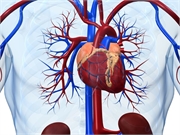Association strongest among premenopausal women, postmenopausal women without hormone use
TUESDAY, March 24, 2020 (HealthDay News) — Higher intake of foods like tofu with isoflavones is associated with a moderately lower risk for developing coronary heart disease (CHD), according to a study published online March 23 in Circulation.
Le Ma, M.D., from the Xi’an Jiaotong University Health Science Center in China, and colleagues used data from 74,241 women participating in the Nurses’ Health Study (NHS; 1984 to 2012), 94,233 women from the NHSII (1991 to 2013), and 42,226 men from the Health Professionals Follow-Up Study (1986 to 2012). All participants were free of cardiovascular disease and cancer at baseline and provided dietary data every two to four years. Medical records and death certificates were reviewed during follow-up.
In adjusted analyses, the researchers found that isoflavone intake was inversely associated with CHD (pooled hazard ratio [HR] comparing the extreme quintiles, 0.87; 95 percent confidence interval [CI], 0.81 to 0.94; P = 0.008). Specifically, consumption of tofu was inversely associated with the risk for CHD (HR, 0.82; 95 percent CI, 0.70 to 0.95; P = 0.005), but soy milk was not (HR, 0.87; 95 percent CI, 0.69 to 1.10; P = 0.41) when comparing one or more serving/week with less than one serving/month. In women, the favorable association of tofu was primarily driven by a stronger association among younger women before menopause and postmenopausal women without hormone use.
“Other human trials and animal studies of isoflavones, tofu, and cardiovascular risk markers have also indicated positive effects, so people with an elevated risk of developing heart disease should evaluate their diets,” a coauthor said in a statement. “If their diet is packed with unhealthy foods, such as red meat, sugary beverages, and refined carbohydrates, they should switch to healthier alternatives. Tofu and other isoflavone-rich, plant-based foods are excellent protein sources and alternatives to animal proteins.”
Copyright © 2020 HealthDay. All rights reserved.








